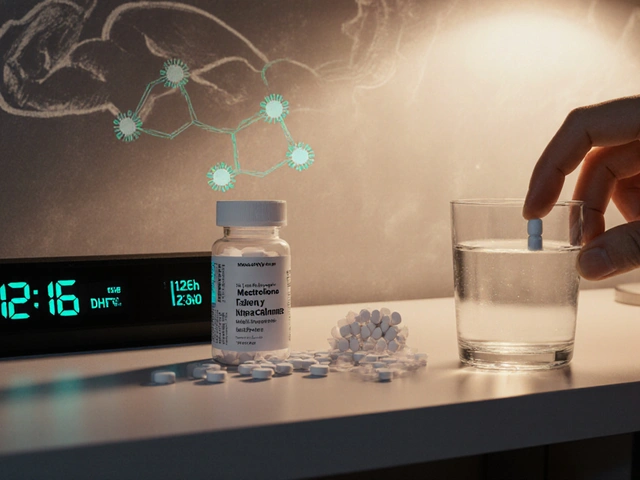Phage Therapy for Urinary Tract Infections – What You Need to Know
Did you know some doctors are using viruses to fight the bacteria that cause bladder infections? That’s phage therapy, a growing alternative when antibiotics fail or cause side effects. It’s not science fiction – real labs are testing phages on the same bugs that make your urine sting. If you’ve dealt with recurring UTIs, this could be the next option to ask your doctor about.
How Phage Therapy Works
Phages, short for bacteriophages, are tiny viruses that only attack bacteria. Each phage type homes in on a specific bacterial strain, latches onto it, injects its DNA, and forces the bug to burst open. The result is a targeted kill‑off with almost no impact on good microbes in your gut or skin. For urinary tract infections, researchers isolate phages that hunt common culprits like E. coli, Klebsiella, and Proteus. The phage cocktail can be taken as a pill, a liquid, or even a catheter rinse, delivering the virus straight to the infection site.
Is It Safe and Where to Find It?
Safety is a top question. Because phages only target bacteria, they rarely trigger allergic reactions or disrupt your normal flora. Clinical trials in Europe and the U.S. show low side‑effect rates, mostly mild stomach upset when taken orally. The biggest hurdle is regulation – the FDA hasn’t approved a phage product for UTIs yet, though compassionate‑use cases are allowed. If you’re interested, look for certified compounding pharmacies that follow Good Manufacturing Practices, or enroll in a clinical study through a university hospital.
Talking to your healthcare provider is crucial. Bring any lab reports that identify the bacteria causing your infection, and ask if a phage‑susceptibility test is available. Some labs can test the isolated strain against a phage library to see which virus works best. If the test is positive, the doctor can prescribe a custom phage cocktail, or refer you to a specialist center that prepares the treatment.
Phage therapy isn’t a DIY project. Buying “phage kits” online may sound tempting, but unregulated products can contain the wrong virus, be contaminated, or simply be ineffective. Stick to sources that provide a certificate of analysis and have a track record of clinical use. Many patients also combine phage therapy with a short course of antibiotics to boost the kill rate and prevent resistance.
Costs can vary. Since phage treatments are still custom‑made, they often run higher than a standard antibiotic bottle. Insurance coverage is rare, but some research grants or hospital programs may cover part of the expense. It’s worth asking the pharmacy about payment plans if price is a concern.
Bottom line: phage therapy offers a precise, low‑side‑effect way to tackle stubborn UTIs, especially when antibiotics no longer work. Keep an eye on ongoing trials, talk to a knowledgeable doctor, and make sure any phage you use comes from a reputable, regulated source.
Explore cutting‑edge research reshaping bladder infection treatment, from phage therapy and CRISPR antimicrobials to rapid diagnostics and vaccines, and see what patients can expect in the next few years.



 Medications
Medications




